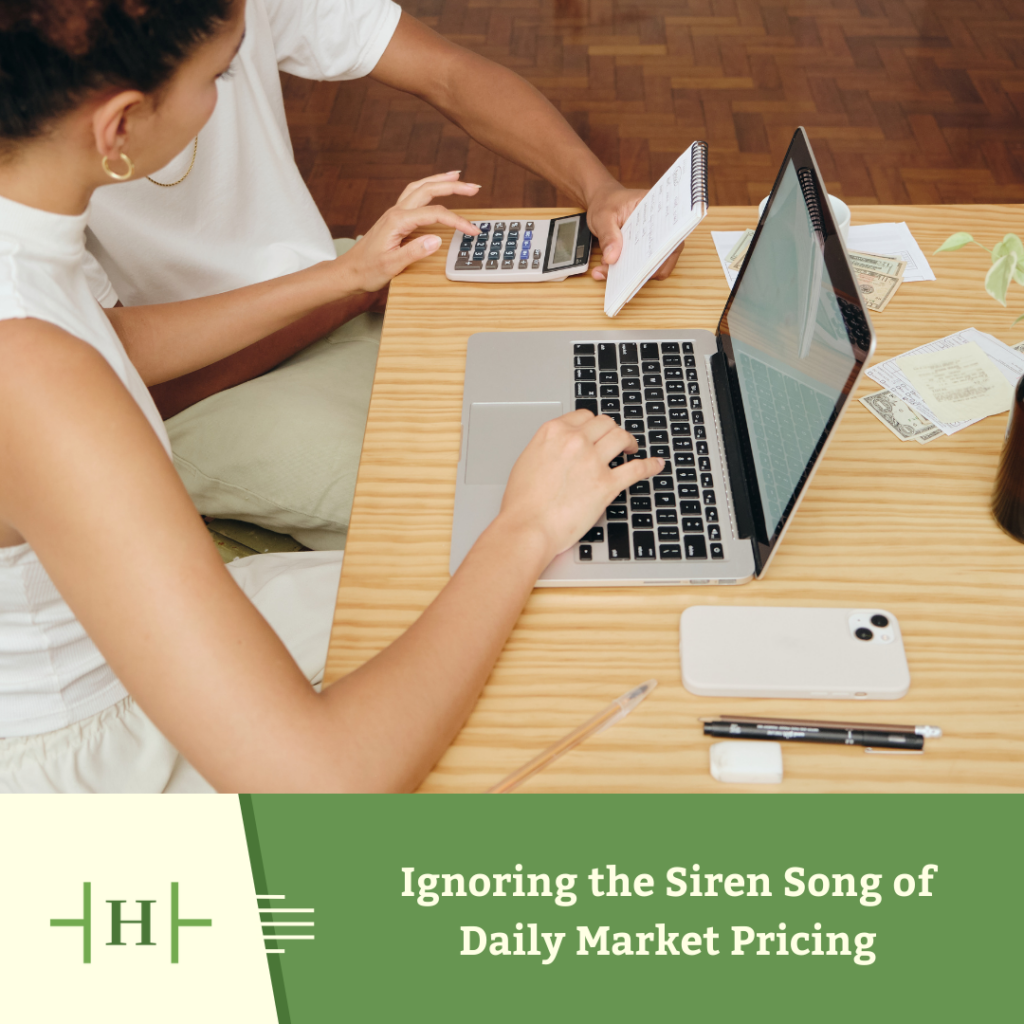
Welcome to the next installment in our series of Hiley Hunt Wealth Management Evidence-Based Investment Insights: Ignoring the Siren Song of Daily Market Pricing.
In our last piece, “You, the Market, and the Prices You Pay,” we explored how group intelligence governs relatively efficient markets (as well as jelly beans) in an imperfect world. Next, let’s look at how prices are set moving forward. This, too, helps us understand why traditional active investors face a steep hurdle by trying to compete against rather than participate in efficient markets.
News, Inglorious News
What causes market prices to change? It begins with the never-ending stream of news informing us of the good, bad, and ugly events that are always taking place. For example, when there are reports that a fungus is attacking Florida trees, orange juice futures may soar, as the market predicts that there is now going to be less supply than demand.
But what does this mean to you, your investment portfolio, and every investor’s quest to buy low and sell high? Should you buy, sell, or hold tight to your juiciest investments?
Before the news tempts you to chase or flee active trends, it’s critical to be aware of the evidence that tells us the most important thing of all: You cannot expect to consistently improve your outcomes by reacting to breaking news.
Great Expectations
How the market adjusts its pricing is why there’s not much you can do about breaking news. There are two principles to bear in mind here.
First, it’s not the news itself that moves the price; it’s how it impacts our expectations. When a security’s price changes, it’s not whether something good or bad has happened. It’s whether the news is better or worse than expected. If it’s reported that an orange tree disease is continuing to spread, pricing changes may be minimal if everyone was already bracing for ongoing doom and gloom. On the other hand, if an ingenious new fungicide is announced, prices may change dramatically in reaction to the lucky break.
Thus, it’s not just news, but unexpected news that alters future pricing. By definition, the unexpected is impossible to predict. So is how, and how dramatically (or not) market players respond to it. For example, what’s good news to one industry may be bad news to another. Once again, group intelligence gets in the way of those who are hoping to outwit others by consistently forecasting future prices.
The Barn Door Principle
Another reason to consider breaking news irrelevant to your investing is what we’ll call “The Barn Door Principle.”
By the time you hear any breaking news, the market already has incorporated it into existing prices, well ahead of your ability to act on it. The proverbial horses have already galloped past your open trading door.
This is especially so in today’s world of electronic trading and social media broadcasting. Prices are set and re-set nearly instantaneously as fresh news arrives.
In other words, unless you happen be among the very first to respond to breaking news (competing, mind you, against automated traders who often respond in fractions of milliseconds), you’re setting yourself up to counterproductively buy higher or sell lower than those who already have set new prices based on the news.
Your Take-Home
Avoid trying to play an expensive game of market whack-a-mole, based on ever-evolving information and cut-throat competition over which you have no control. Instead, position your life savings to benefit from greater market efficiencies.




